How Did Voice AI Startup Speak Achieve a $1 Billion Valuation?
![]() 01/03 2025
01/03 2025
![]() 632
632
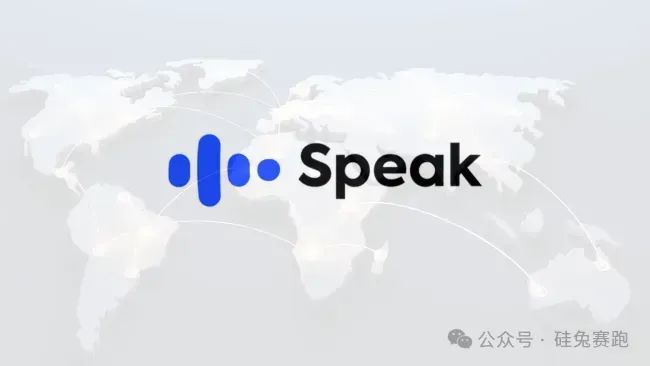
Author: Lexie, Editor: Lu
"AI Empowers Education, Revolutionizing the Learning Experience."
Mastering a new language efficiently is a dream for many, yet even after months of Duolingo, individuals often struggle in real conversations. This is because traditional language learning prioritizes reading and writing, whereas native speakers primarily acquire language through listening and speaking.
The language learning app Speak has capitalized on this insight by leveraging generative AI to create a platform centered around "speaking aloud." This approach helps users truly master a language through audio conversation practice, transcending reliance on rote phrases and textbook grammar.
In early December 2024, Speak secured a $78 million Series C funding round, valuing the company at $1 billion. Accel led the round, with continued support from the OpenAI Startup Fund, Khosla Ventures, and Y Combinator. Just six months prior, Speak had closed a $20 million Series B round, doubling its valuation in half a year. Ben Quazzo, an Accel partner, joined Speak's board post-funding, noting the company's emergence as a consumer AI leader, rapidly growing and demonstrating significant market potential, redefining language learning.
#01 Listening & Speaking > Reading & Writing = Explosive Growth
Since its inception, Speak has focused on fluent language expression as its technological core—an area traditionally underserved by technology despite being crucial for language learning. With generative AI, Speak addresses this gap by breaking down language learning into three steps, simulating real-life language environments:
1. Starting with Listening and Speaking: Users dive straight into conversations, bypassing complex grammatical rules. Founder Zwick explains, "We don't explain grammar rule by rule; we let users experience the language directly."
2. Continuous Repetition: Users repeat new phrases in various contexts until proficiency, without needing translation.
3. Real-Life Application: AI-generated real-life conversations help users integrate language into practical use.
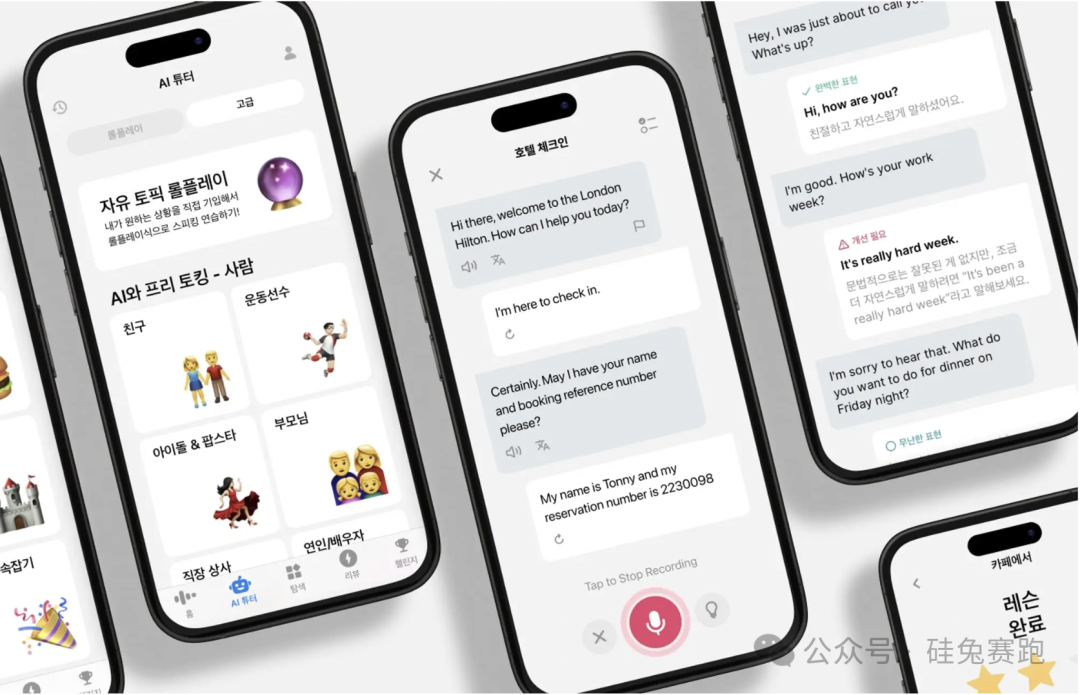
Speak Interface
The entire process is AI-driven, without human intervention. Speech recognition, natural language processing, and generative AI harmonize to precisely match user needs. OpenAI not only financially supports Speak but also empowers its technology through its language models. Since 2022, OpenAI has invested in Speak, aiming to transform language learning with generative AI.
While similar to apps like Duolingo in allowing users to converse and practice with machines, Speak's focus on "listening" and "speaking" sets it apart, earning user favor. Currently, average daily usage is 10-20 minutes, with a subscription price of $20 per month or $99 per year—a fraction of hiring a human tutor.
Since launch, Speak has shone: app downloads surpassed 10 million, with users completing over 25 million personalized lessons this year alone. Users have spoken over 1 billion foreign language sentences on the platform. In South Korea, Speak's primary market, it has helped 6% of the population become fluent in English. On the enterprise side, over 200 companies use Speak for employee language training, with an 85% employee usage rate.
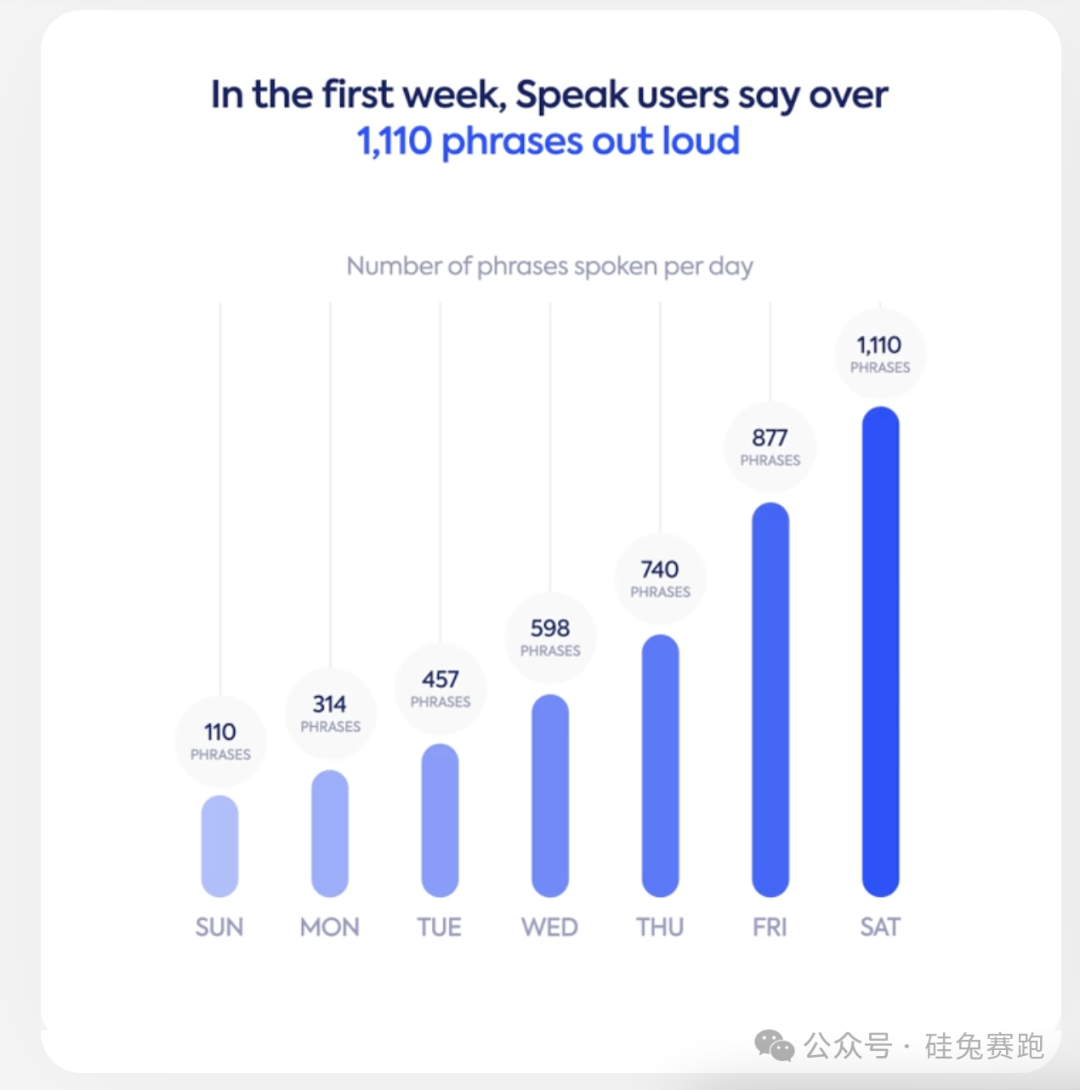
Phrases spoken by Speak users
Speak's ambitions extend beyond English; users can currently learn Spanish, with French, German, Chinese, and Japanese forthcoming. Speak's "real conversation"-centric approach offers language learners a more immersive experience, significantly enhancing learning effectiveness, positioning it as an AI language learning dark horse.
#02 AI Empowering Education: Revolutionizing the Learning Experience
AI is transforming the education industry at an astonishing pace, optimizing the learning experience and transforming educational products' core value. Beyond language learning, many companies explore AI to maximize learning efficiency. For instance, Duolingo, a popular language learning app, attracts hundreds of millions with its engaging gamified experience. Recently, it invested in AI to generate personalized exercises, matching user proficiency levels. This feature increased user retention by 15%-20% and reduced learning frustration for 78% of users, improving course completion rates.
In 2023, Duolingo launched Duolingo Max, a GPT-4-based premium subscription allowing users to converse with AI characters in simulated scenarios. Users of Duolingo Max spend 30% more time learning daily than regular users, driving a 62% year-on-year subscription user increase. These AI features grew Duolingo's user base, enhanced the learning experience, and increased satisfaction. Since introducing AI, Duolingo's App Store rating rose from 4.5 in 2022 to 4.7 in 2023. Benefiting from AI and user growth, Duolingo's stock price increased over 50% in 2023, from $90 at the beginning of the year to $140 by year-end.
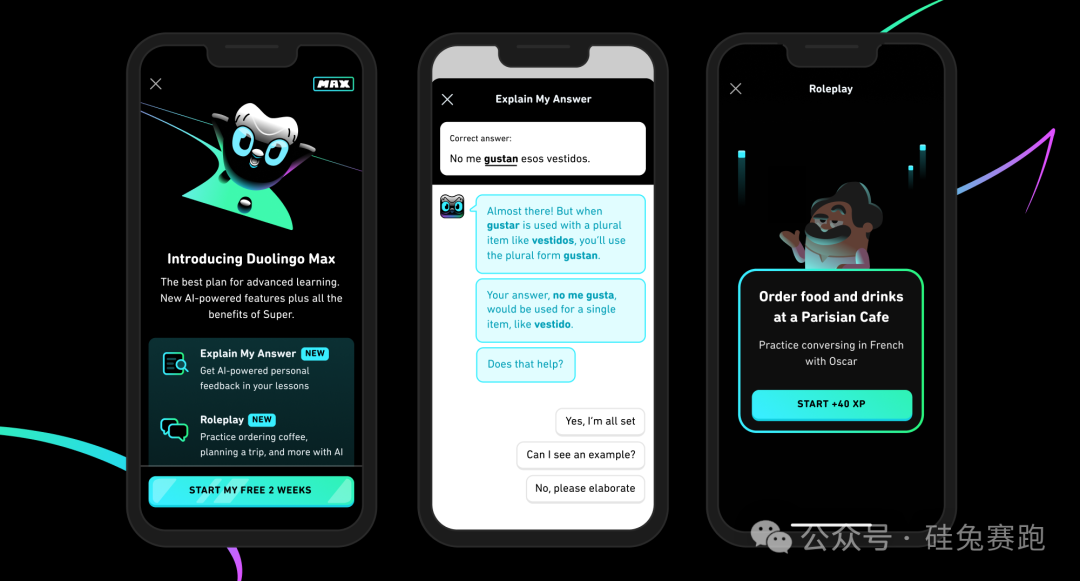
Duolingo Max
However, AI poses an unprecedented challenge to traditional online education platforms like Chegg. Once a giant, Chegg provided exam preparation and homework tutoring services. But ChatGPT's 2023 debut threatened Chegg, quickly generating homework solutions and learning advice, directly replacing Chegg's core services. This led to significant subscriber loss, with Chegg's subscription revenue declining 7% year-on-year in Q1 2023 and total revenue dropping to $182.8 million in Q2.
Chegg attempted to compete with ChatGPT through "CheggMate," but due to a late launch and limited functionality, it failed to turn the tide. Its stock price plummeted, falling from $30 in 2022 to just $2 today. This demonstrates that traditional education platforms risk marginalization if they fail to adapt quickly to generative AI.
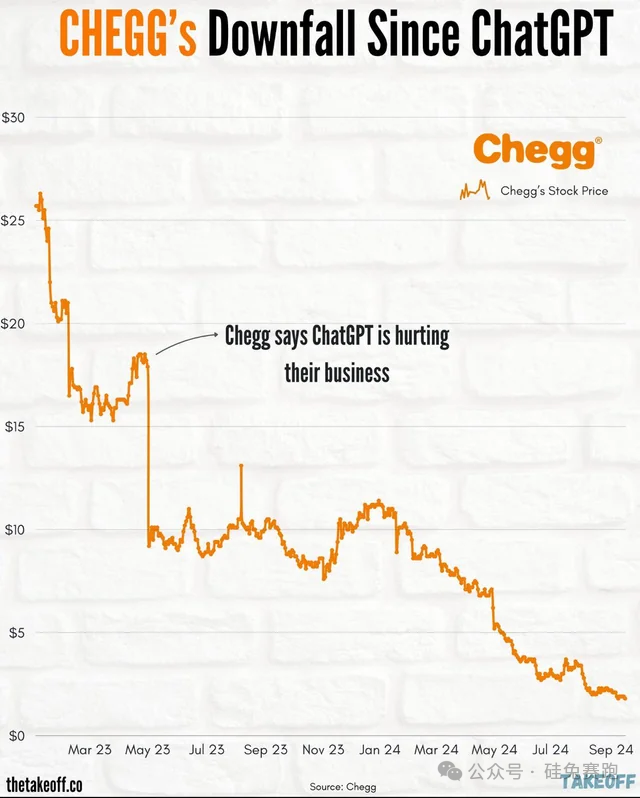
Chegg Stock Price Trend
Amid the AI wave, other educational products actively embrace this technology to break free from traditional models. Quizlet, an efficient study flashcard platform, improved learning efficiency by 40% and increased new user registration by 30% through generative AI-powered personalized learning paths and real-time interaction. Khan Academy's "Khanmigo" AI tool acts as a virtual tutor, improving test scores by about 15%. Elevate, a cognitive skills training app, uses AI to adaptively adjust question difficulty, enhancing users' memory and processing speed by 25% within three months.
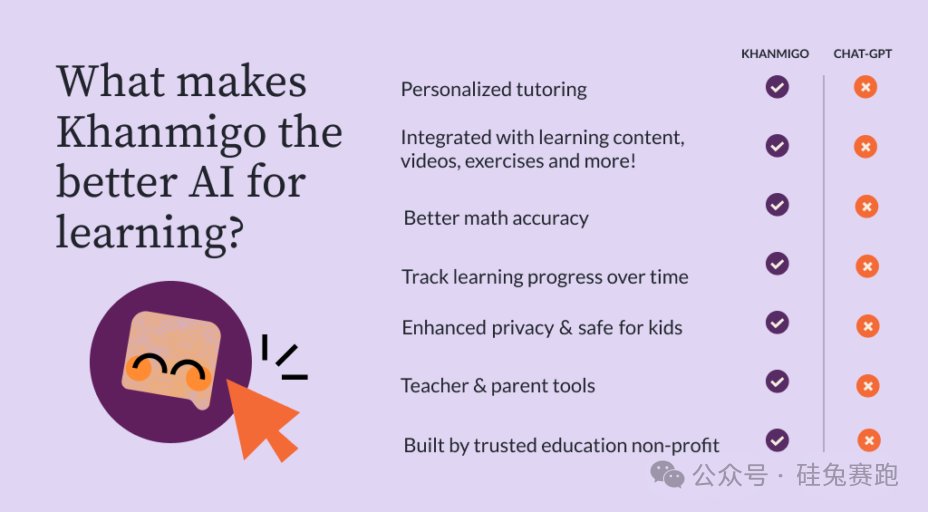
Khanmigo
Traditionally slow-moving, the education industry is now rapidly evolving with AI. By enhancing learning efficiency and revolutionizing business logic, AI enables "personalization" and "scalability" to coexist, opening new growth opportunities for ed-tech companies.
Platforms like Speak exemplify this, leveraging generative AI for highly personalized learning experiences. Learning is no longer passive memorization but dynamic practice. Speech recognition and contextual conversation technology make "speaking aloud" the core of language learning. This low-cost, scalable model makes high-quality education accessible to more users, providing rapid market expansion opportunities for educational startups.
AI's charm in education lies in making learning more realistic. Generative AI simulates conversations and life scenarios, making users feel like they have a thoughtful learning partner rather than a cold tool. Success hinges not on technology complexity but on natural user experience. Whether Speak's immersive language learning or Quizlet's generative AI for memory efficiency, these products captivate with intuitive, nuanced experiences.
Innovations in business models elevate education's appeal. Subscription services provide stable cash flow, and accumulated user data enhances product optimization, forming a closed loop. AI technology's rapid iteration allows educational tools to enter vertical fields at low marginal cost, extending from language learning to corporate training and vocational skill enhancement.
AI hasn't changed education's essence—helping humans learn more efficiently—but it's rewriting the industry rules. As education becomes smarter, more inclusive, and people-oriented, the AI revolution has just begun. Those balancing technology and user experience will likely dominate the education industry's future landscape.
Reference sources: Language learning app Speak nets $20M, doubles valuation (TechCrunch), Our Investment in Speak: The Language Learning App That Gets You Talking (Accel), ChatGPT WRECKS Chegg's stock price (Superhuman AI)






